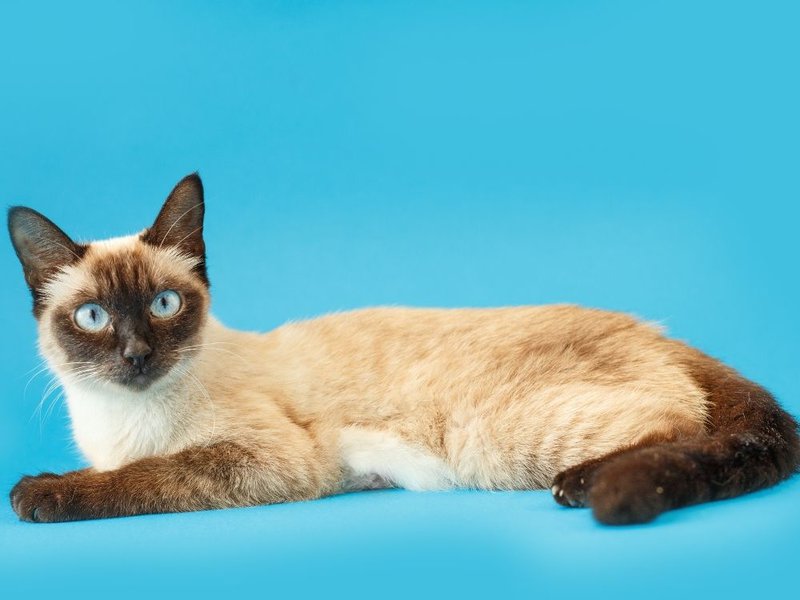While we all wish they could live forever, there eventually comes a time when we have to say goodbye to our furry friends. And this article is to address curiosity on how long domestic cats typically live.
So, how long do cats live? An indoor cat, on average, lives for between 10 to 15 years. And this is dependent on several factors such as the feline’s general health, feeding and nutrition, nature of the environment, and to an extent, the breed of the cat.
So, when your cat has lived long enough and is about to die, what are the usual signs to look out for? And would it be better to put your furry friend to sleep or let it die naturally? Answers to these, along with tips to help your cat live longer and healthier, will be provided in a minute. But before that, let’s take a look at how long domestic cats typically live.
What Is The Average Lifespan Of A Housecat?
The normal life expectancy for a house cat typically ranges from between 10 to 15 years. And for obvious reasons, outdoor cats, with an average life expectancy of 2 to 5 years, live for far less periods.
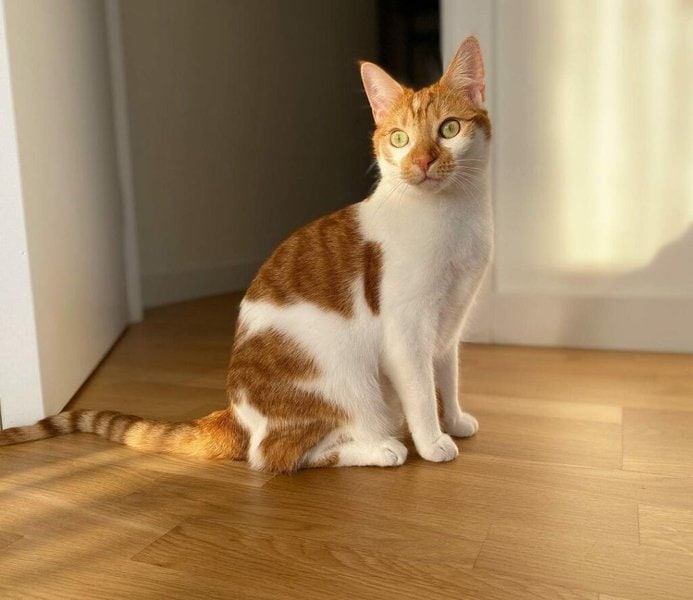
Stages Of A Cat’s Life
The following is a breakdown of the stages of a kitty’s life, from birth to death:
- Kitten: From birth to 6 months old
- Junior: From 6 months to 2 years old
- Prime: From 3 to 6 years old
- Mature: From 7 to 10 years old
- Senior: From 11 to 14 years old
- Geriatric: 15 years and above
Factors That Affect A Cat’s Lifespan
Now that we know how long your kitty is supposed to be around, let’s take a look at some factors that typically affect a cat’s lifespan.
Breed
Due to the genetics involved, one factor that has an influence on how long a cat is going to live is its breed, with some cats known to stay around longer than others. Feline breeds such as the Siamese, Burmese, and the Savannah cat are some of the longest-living breeds. And on the other end of the spectrum, the Sphinx, Manx, and Exotic cats live relatively shorter lives.
Weight
Several studies have shown that fat or obese cats are will most likely live for a shorter period, compared to kitty cats with smaller weights. And this is simply because fat cats are at a higher risk of suffering from weight-related health conditions such as diabetes, joint diseases, respiratory issues, and many more.
Diet
Cats thrive best on animal-based protein food, and the quality of food regularly given to felines ultimately has an impact on how long they live. It also goes without saying that feeding a kitty cat appropriately, in regards to quality and volume, will help ensure it maintains a healthy weight, thereby ensuring a longer life.
Health
Obviously, healthier cats will lead longer and happier lives, as opposed to kitty cats that spend most of their time on the vet’s table. Additionally, some diseases such as cancer have long-term effects on cats, thereby reducing their lifespan in the long run.
Lifestyle
As stated earlier, indoor cats usually live longer than their outdoor counterparts. This is because an indoor feline has the luxury of its owner’s care and attention on top of the safety of being indoors, whereas outdoor cats mostly have to fend for themselves while battling against harsh weather conditions and predators.
How Do Most Cats Die?
While every owner wishes that their cats live long and fulfilling lives, and then die cuddled in their arms, this is not always the case. The truth is, there are several ways for a cat to pass on, and according to several studies and surveys carried out by researchers,
Some of the major culprits in cats’ deaths include:
Infections And Diseases
Cats are predisposed to a high number of fungi, bacterial and viral infections. And the number one killer of domestic cats is these various infections and diseases.
Some of the most common infections and diseases that cats usually die of include neoplasms like feline leukemia and lymphoma, feline infectious peritonitis, various chronic kidney and liver diseases, among others.
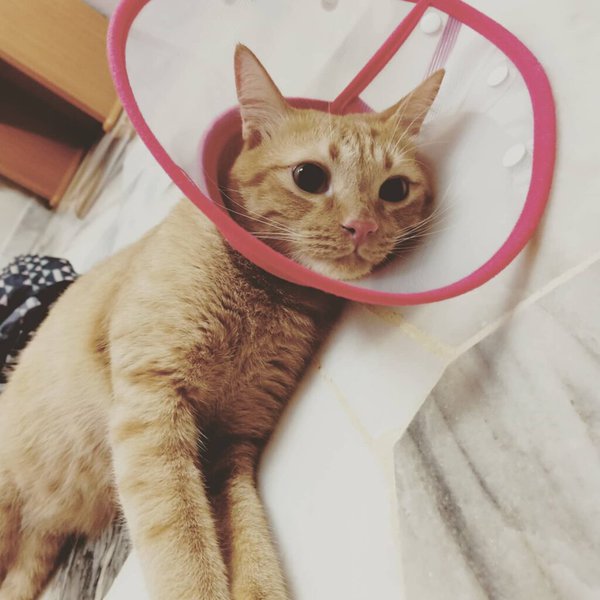
Accidents
Cats are fragile animals, and if left to roam outside, they are at a higher risk of getting involved in automobile accidents. Car accidents involving cats typically result in instant death. And a kitty cat that does manage to survive an accident might end up in a great deal of pain, even after medical attention, thereby leaving the owner no choice but to put it to sleep.
Indoor cats are not totally safe as well, and there are several home accidents that can potentially prove to be fatal to your furry friend.
Old Age
Due to the care and attention provided to them, most indoor cats live longer. And it is a common occurrence for an indoor cat to die from old age, snuggled up in its favorite hiding place.
What Are The Signs Of Cat Dying?
Increased Hiding
Cats seemingly know when they’re dying, and an increase in your feline’s hiding behavior can be an indicator that it’s dying. If you own an otherwise healthy kitty cat, and it’s becoming more difficult for you to find it in the home, then it might be an indicator that you need to start preparing for the inevitable.
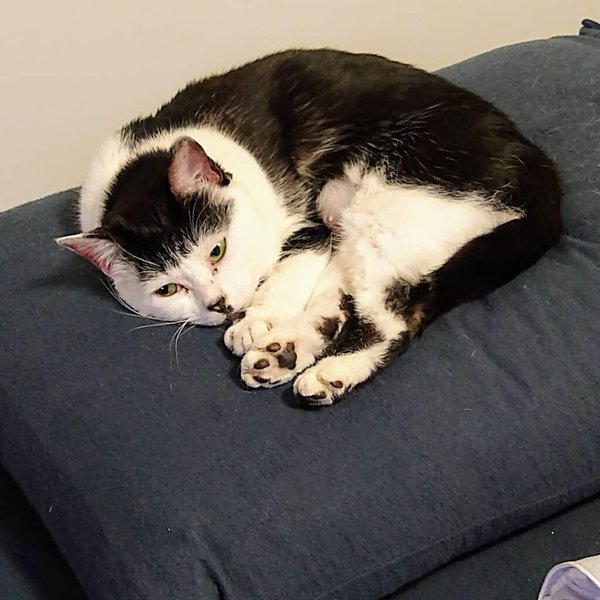
Loss Of Appetite
Loss of interest in eating and drinking is another sign that a cat is dying. And if you have an aged feline whose food and water bowls are mostly always full, then you should start preparing your goodbyes.
Do note that loss of appetite, however, can be an indicator of an inherent sickness and not necessarily death; Hence, when you notice this in your kitty cat, you should immediately book an appointment with the vet for proper diagnosis. And with the proper treatment, it may be possible to prolong your furry friend’s life.
Unkempt Appearance
One of a feline’s favorite pastimes is grooming itself, but as a kitty cat comes closer to the end of its life cycle, it typically loses interest in grooming by rubbing and licking itself; This, in turn, results in matted fur for long-haired cats, dandruff on the feline’s skin, and a generally untidy appearance.
Body Odor
Another indicator that a cat is approaching the end of its life is an unnatural body odor. Dying cats typically find it difficult to eliminate toxins and remnants of tissue breakdown in the body, thereby resulting in a foul smell.
Behavioral Changes
When a feline starts exhibiting behaviors that are in direct contrast to its known personality, then it can be a sign that it is about to die. This can manifest in a dying cat losing interest in its favorite activities and toys, or not purring when being petted.
It is also possible that dying cats that were formerly outgoing can become recluses, while felines that would rather be left alone start seeking their owner’s attention.
Is It OK To Let My Cat Die Naturally?
If you’re comfortable with witnessing the rapid decline of your cat’s health and the final moments of its life, you can let your feline die naturally at home, while providing the necessary care and attention to make sure its transition is as smooth as possible.
And some of the things you need to put in place if you want to provide home care for a dying cat include:
- Consulting with your vet to get appropriate pain-relieving medication.
- Creating a safe, comfortable place for the feline to rest; provide soft, well-cushioned bedding for your furry friend.
- Making it easy for the cat to get to its litter box when it has to poop and pee. You should also assist your cat to eliminate, if it’s too weak to move.
- Regularly changing soiled beddings for cats suffering incontinence.
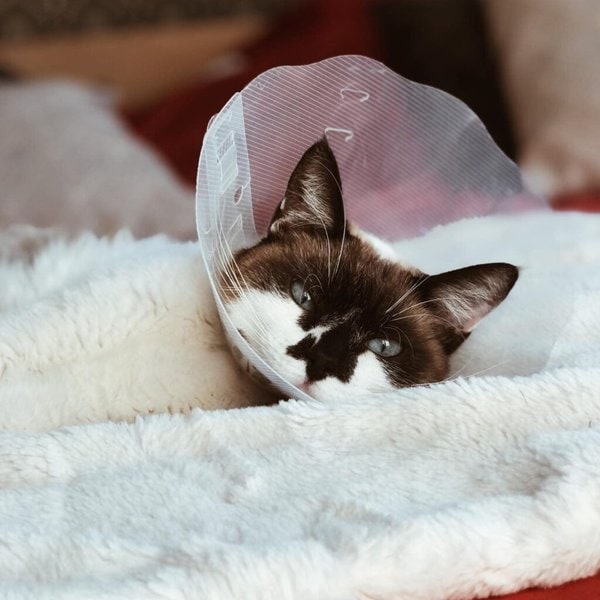
When Is Euthanasia Necessary?
If you notice that a dying cat is in a great deal of pain, having difficulties breathing, or you’re having a hard time handling its rapidly declining health, the humane thing to do is to put your furry friend to sleep.
Putting a cat to sleep, when done right, is a fast and painless procedure, and luckily, there are also ways for vets to euthanize your furry friend at home.
What To Do When Your Cat Dies At Home?
Once you’ve confirmed that your cat is dead at home, the first thing to do is to properly store the body while you make arrangements for burial or cremation. Wrap the dead cat in a plastic bag, and store it in a cool place to slow down decay and eliminate the risk of your family coming in contact with toxic materials.
Cremation Or Burial
After properly storing your dead cat’s body, the next point of action is to make a decision on whether to bury or cremate your furry friend.
In some states, it is illegal to bury dead cats on private properties, hence you should rather research local pet cemeteries in your area to bury your cat. And if you’d rather cremate your dead kitty cat, consult your vet for suitable options.
How Can I Help My Cat Live Longer?
While there is no telling when a cat will die, there are certain measures you can put in place to ensure your furry friend lives a healthy, happy life, thereby helping to prolong its lifespan.
Quality Meals
Cats are carnivores by nature and thrive best on meals that mostly contain animal-based protein, taurine, along with certain vitamins and fatty acids. And it is this that should make up the bulk of your feline’s diet.
High-quality, packaged food typically meets all of the requirements stated above, and the Nom Nom Cat Food is one of the best products you can feed your feline with. The Nom Nom Cat Food is prepared with natural, tasty ingredients and contains a high level of meat-based protein that is essential for your kitty cat’s longevity.
Multivitamins like the Vetri Lysine Plus also help boost a cat’s immune system, and fight off diseases and infections better; Therefore, you should occasionally add these to your feline’s meal.
Also, cats need a regular supply of water as they grow to help with temperature regulation, improve kidney functioning and prevent dehydration. And it is your duty as an owner to ensure your kitty cat’s drinking bowl is never empty.
Regular Exercise
The importance of quality exercise in prolonging a cat’s lifespan can’t be overstated. And it’s essential that you regularly exercise your kitty cat to improve and maintain its quality of life. Regular exercise helps keep a cat from getting overweight and helps prevent the occurrence of diseases such as arthritis, in the future.
Cats are natural-born climbers; hence you can provide vertical and horizontal climbing surfaces at appropriate locations in the home. You should also provide plenty of toys for your cat to play with as it helps keep it exercised and mentally stimulated.
Keep Your Cat Indoors
Keeping a cat indoors, away from the dangers of the outside world, can also significantly increase its lifespan. Leaving your cat free to roam outside means it’s at a higher risk of falling prey to predators, exposure to toxic substances, and accidents.
However, cats can get pretty bored when indoors, hence you should get your furry friend toys such as the PetDroid Interactive Cat Toy to play with.
This cat toy comes with a massive battery capacity, and automatic, random ball movement that ensures kitty cats can play for as long as they want.
In addition to toys, you can also get your furry friend another pet or pets to play with.
Regularly Visit The Vet
Cats are particularly good at hiding pain. And taking your cat to the vet’s for occasional check-ups can help detect illnesses at an early stage, thereby giving you better overall knowledge and handling of your furry friend’s health.
Also, if you notice symptoms such as excessive vomiting, lethargy, sneezing, breathing issues or changes in litter habits in your furry friend, call for medical help immediately.
Related Questions
What Is The Longest Living Cat? There is no specific evidence to suggest which feline is currently the longest living cat in the world. However, the record for the oldest cat ever, according to the Guinness World Records belongs to a Cat named ‘Crème Puff’ that lived for an astonishing 38 years and 3 days!
Should You Put Down A Blind Cat? Due to their incredibly sharp senses, blind cats are still very much aware of happenings in their surroundings; Hence, you don’t need to put down a blind cat. What you should do to assist a blind cat, instead, is to ensure that, as much as possible, its immediate environment remains unchanged.
Why Do Cats Die With Eyes Open? Cats die with open eyes because they require muscle control to keep the eyelids closed. Once dead, cats lose control of this muscle, and, as a result, can’t close their eyes. And in addition to an open eye, a dead cat’s pupils will typically be large and unresponsive to light.

